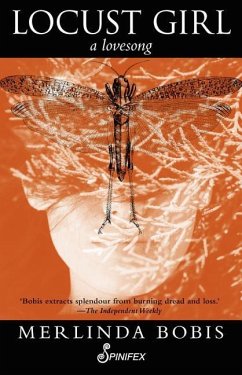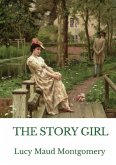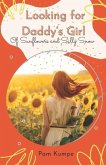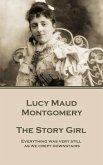This novel is a fairytale, a political allegory, and a philosophical interrogation of the human heart. Most everything has dried up: water, the womb, even the love among lovers. The earth is now mostly desert, except the last green haven behind the border where the carers of the earth preserve the natural order. Carers manage the earth's last resources and keep the wasters out. But in the vast dry outside, hunger is the pernicious plague, and people feed on sand and locusts. So they walk the dry to cross the border. But once, terrible fires crossed it too and devastated the green haven. Since then, carers have been ever-more vigilant and afraid. One night, a village is bombed for seeking to walk to the border. Only two survive: nine-year old Amedea and a locust buried in her brow. This is the story of the Locust Girl. This is her lovesong -- for those walking to the border for dear life, and those guarding the border for dear life.







